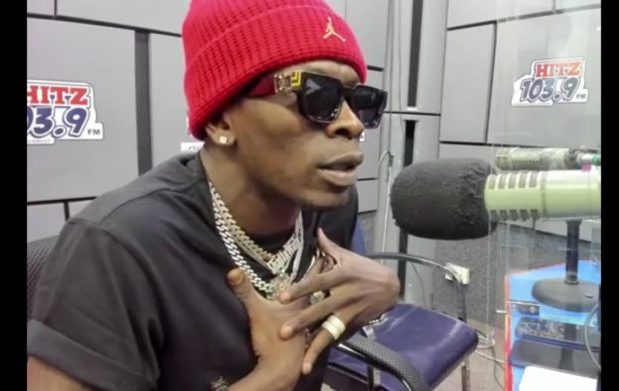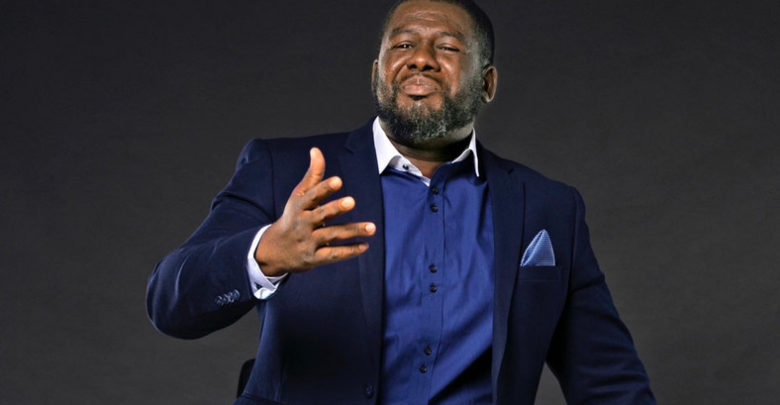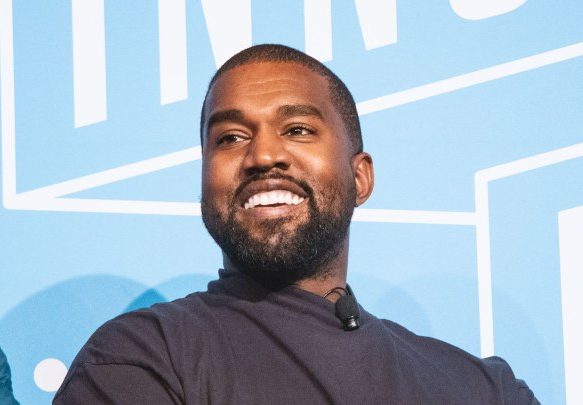Kafui Dey provides guidelines on the best way to interview Shatta Wale

Popular media personality, Kafui Dey, has provided insights on how to interview dancehall artiste, Shatta Wale.
This comes after he was recently lauded for conducting one of the finest interviews the controversial artiste has ever had.
Kafui Dey’s interview with Shatta Wale went viral on social media amidst positive reviews on how their interaction was fun, educative yet compelling.
He was commended for his intelligent line of questioning that centered on respect and pertinent issues relating to the SM boss’ craft, and so on.
It can be recalled that Shatta, who joined the list of netizens who extolled the broadcaster, eulogized him on Facebook.
Buttressing on how successful it was, he stated his readiness for a ‘part II’, of their discussion.
Basking in the wave of admiration and praise, Kafui Dey has taken to social media to present a guideline on how to interview Shatta Wale.
Read his guidelines below, shared on Twitter below:
How to Interview Shatta Wale – Part 1
Before the Interview
The interview actually began before we went on air. I met Ghanaian musician Shatta Wale with his entourage just outside the Makeup Department at Ghana Television. We walked into the studio together making small talk. As soon as he took his seat, I asked him “What do you want people to know at the end of this interview?” Shatta’s response was not what I expected. “That I’m just a real person.” I said to myself “Let’s go!”
What to Remember
Don’t interview a guest “cold”. The first words you speak to an interviewee should not be when you are live on air. When I heard that Shatta and his team were almost at GTV, I went out of the studio with my cup of koko (porridge) and positioned myself in such a way that I would meet him and chat for a few minutes before the interview began.
Most interviewees are unsure of how an interview will turn out so it’s important to keep things warm and relaxed before the cameras start rolling.
Don’t make assumptions about the aim of the interview. As part of my briefing, my show director had told me the musician was coming to promote his new album. But I still asked Shatta what he wanted to get out of the interview.
I was pleasantly surprised when he implied that the interview could go beyond just his music. As an interviewer, that meant I had a lot more ground to cover.
Just asking “What do you want to get out of this interview” gives you an idea of what the final result will look like. Note: I did not show Shatta my questions or even tell him what areas I would be covering. My question centred on what outcome he expected at the end of the chat.
I have had guests tell me “Don’t talk about this or that” and I have had to respect their wishes. I have also seen controversial and not-so-controversial guests end interviews abruptly and walk off because the host went down a path that was not agreed upon.
I know which route works better and achieves more. Anyone who sits in the guest’s chair for an interview has an aim to achieve. Simply ask them what they want to get out of the chat and base your questions around that objective.
The Introduction
How you start an interview is very important. It lays the foundation for the conversation that will ensue. This is how I began my chat with Shatta:
Me: You’re watching GTV Breakfast. My guest is…Shatta Wale. Good morning.
Shatta: Good morning.
Me: How be things?
That’s it. In 6 seconds, I had identified the station, introduced my guest, greeted him, and asked him my first question. Why did I do it so quickly?
There are 3 good reasons to keep introductions short, whether the guest is controversial or not.
What to Remember
You need to keep your audience interested in the interview. These days people are time-starved with multiple things competing for their precious attention. A long introduction may make a viewer or listener tune off to do something else. You don’t want that to happen to you.
I could have recited a long list of Shatta Wale’s achievements as part of my introduction. I didn’t. It’s repetitive to introduce a guest by listing all their credentials right at the beginning and then asking about those same credentials within the interview. Don’t be boring. Get straight to the point.
With 1 mouth and 2 ears, we all should talk less and listen more, especially interviewers. Corporate trainer and author Brian Tracy says you can’t learn when you are talking. I agree with him.
Speaking less is beneficial to an interviewer because it gives the host more time to hear and learn from the person who has come on the show to talk. Makes sense doesn’t it?
How to Interview Shatta Wale – Part 1
Before the Interview
The interview actually began before we went on air. I met Ghanaian musician Shatta Wale with his entourage just outside the Makeup Department at Ghana Television. We walked into the studio together making small talk. As… pic.twitter.com/WEbsNZprXp
— Kafui Dey (@KafuiDey) April 6, 2024
Source: mynewsgh.com





